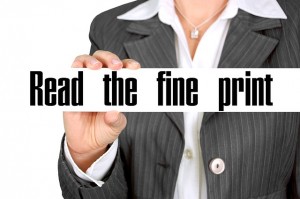 Not every author has an agent or an intellectual property rights attorney who can advocate for their rights and protect their work. So what do you need to know?
Not every author has an agent or an intellectual property rights attorney who can advocate for their rights and protect their work. So what do you need to know?
You might be surprised if you “lawyer up,” your contract offer may be withdrawn. Why? Most publishers offer contracts which use boilerplate language and they do not negotiate every term and condition for each contract they offer to authors. There are a limited number of items in a contract that a publisher will—or should be willing to—negotiate. Attorneys unfamiliar with the publishing industry or intellectual property rights might make suggestions which result in no book deal. Advances and copyright royalty percentages have shrunk so much in financial terms in the last decade that if you hire a high-priced attorney it will cost you more in legal fees than what you will earn from sales of your book. The publisher will quickly realize you don’t have a realistic grasp of the contract offer and no publisher wants to work with a litigious author.
We recommend you join the Authors Guild because their experienced legal team offers reviews of publishing (including e-publishing) contracts at no cost to members. They will also provide suggestions for negotiating strategies and, when necessary, intervene in publishing disputes. Their advocacy work supports authors’ rights and their ability to earn a living in this changing publishing landscape. This year they have advanced a Fair Contract Initiative.
Any writer who has been published by an established US book publisher or by periodicals of general circulation in the US qualifies for membership in the guild. You may also qualify by demonstrating income from writing, whether in print or online. If you don’t meet their membership criteria you may join as an associate non-voting member which includes all the benefits and services of regular membership.
 If you are offered a contract to publish, what do you need to consider and negotiate before you sign on the dotted line? In the order in which they typically appear, these are the major sections of a publishing contract to read and review.
If you are offered a contract to publish, what do you need to consider and negotiate before you sign on the dotted line? In the order in which they typically appear, these are the major sections of a publishing contract to read and review.
Description of Work. The language used to describe the “work” is important to review. Make sure it accurately and completely describes the book. Is the title and/or subtitle right? If the decision on your book title has not been made final, does it appear as a Working Title? Does the description include a word count? If so, the publisher can hold you to that number. It may be to your advantage to remove any word count from the contract. You can always negotiate that with your editor once you have a contract. Make sure you and the acquisition editor see eye-to-eye on what you will submit for publication and that it appears as such in writing in the contract. Also beware of language which makes publication contingent upon acceptance of the manuscript. This means that if your editor, for whatever reason, does not accept your manuscript the contract is null and void.
Rights. There are three parts to the description of what rights you will grant to the publisher for producing and selling your book. The territory, the term, and the type of media formats. One part is the territory. North American rights or world rights? If your book is in English and targeted to an audience in the U.S., there is little sense in granting a publisher world rights which it might exploit for its own profits, including translations and foreign markets. The second part is the term, or length of time, you grant the publisher to sell your book and you want it to be specified. Two years is common. If the term is not specified in the contract, then the grant of rights is for the life of the copyright (usually the lifespan of the author plus 70 years). There should be language regarding rights reversion and how the author can regain the copyright to their own work. Three, the media or formats which grants the rights to a publisher must be spelled out. Hardcover, softcover—whether trade paperback and/or mass-market paperback—audiobook, e-books. Watch out for language like “media now known or hereafter devised” or “including but not limited to.”
 Subsidiary Rights. Television/Movie rights. Book-club rights. Large-print rights. Graphic novel rights. Serialization rights. Translation rights. The income derived from these rights can be worth as much if not more than the rights for the book’s publication. If the subsidiary rights relate directly to the sale of your book, for example book-club rights, it makes sense to grant these rights to a publisher and make sure how the publisher will split the proceeds with author is explicit. For example 50/50 for book-club rights or 90/10 (in author’s favor) for first serialization rights. It may not be in your best interest to grant the publisher the rights to motion picture and TV. If you have an agent, they can effectively advocate for you in selling dramatic rights. Or contact the Authors Guild to review your contract for what is in your best interests given your specific book project.
Subsidiary Rights. Television/Movie rights. Book-club rights. Large-print rights. Graphic novel rights. Serialization rights. Translation rights. The income derived from these rights can be worth as much if not more than the rights for the book’s publication. If the subsidiary rights relate directly to the sale of your book, for example book-club rights, it makes sense to grant these rights to a publisher and make sure how the publisher will split the proceeds with author is explicit. For example 50/50 for book-club rights or 90/10 (in author’s favor) for first serialization rights. It may not be in your best interest to grant the publisher the rights to motion picture and TV. If you have an agent, they can effectively advocate for you in selling dramatic rights. Or contact the Authors Guild to review your contract for what is in your best interests given your specific book project.
Royalties. Many contracts are written with royalties based on a percentage of “publisher’s net receipts” instead of a percentage of the suggested retail list price. The difference between gross revenue from sales and net profits (after the publisher takes out their expenses) is a critical distinction. A good rule of thumb is cut the royalty offered in half if it is based on net revenues. Publishers sell books to distributors and retailers at 40-65% off the list price. If your copyright royalty is 10% of publisher’s net receipts, it means roughly 5% of the cover price. Copyright royalty percentages should be specified for each type of book it publishes. Typical copyright on hardcover and softcover editions are 5% (10% net). Ebooks and audiobooks are typically higher, 12.5%-25% (25-50% net). Beware of “deep discount” clauses which allow publishers to sell books at big markdowns. Such a clause would read like this: “If the book is sold at other than our usual and customary discount, the above referenced royalties will be reduced by one half.” This means your royalty payment is based on a smaller net dollar amount received by the publisher and the percentage of this smaller amount is halved. In recent years some publishers have offered tiered copyright royalties to authors. For example, on the first 1,000 copies sold the author may receive 5%. The royalty rate on 1,001-5,000 copies sold rises to 7.5% and then to 10,000 copies at 10%. The intent here is to give the author an incentive to work at selling their book. If, however, the first print is only 500 copies there is little likelihood the author will sell enough copies to raise their royalty rate and instead takes a rate that may be less than the typical rate.
 Advances. Advances are called that for a reason. The advance was originally intended to give authors some of their royalties up front so they can finance the writing of the book. They are advance payments taken as credit against your royalty earnings. You will not receive any further payments from the sale of your books until you have earned out the dollar amount of your advance. Five to ten years ago there were authors who obtained enormous advances and when their books failed to sell were required to repay the publisher the difference. Today, advances have shrunk—for some nonfiction books there may be no advance at all—and the publisher typically pays an advance the equivalent of what they projected your total royalties will be on a book’s sales. In the last decade it has become more common for a publisher to split up the advance into three payments: one check upon signing the contract, another when you submit the manuscript, and a third when the book is published. Sometimes they are split into four payments; the last quarter of the advance paid one year after publication. Advances should remain advances.
Advances. Advances are called that for a reason. The advance was originally intended to give authors some of their royalties up front so they can finance the writing of the book. They are advance payments taken as credit against your royalty earnings. You will not receive any further payments from the sale of your books until you have earned out the dollar amount of your advance. Five to ten years ago there were authors who obtained enormous advances and when their books failed to sell were required to repay the publisher the difference. Today, advances have shrunk—for some nonfiction books there may be no advance at all—and the publisher typically pays an advance the equivalent of what they projected your total royalties will be on a book’s sales. In the last decade it has become more common for a publisher to split up the advance into three payments: one check upon signing the contract, another when you submit the manuscript, and a third when the book is published. Sometimes they are split into four payments; the last quarter of the advance paid one year after publication. Advances should remain advances.
Copyright. There is no need to register your copyright if you plan to seek publication from a traditional publisher. If you have already copyrighted your own work, then your publisher will assume you have self-published. This part of the contract is where you grant the publisher the right to register the copyright in your name. Be very careful of contracts which grant the copyright of your work to a publisher. There are some legitimate publishing contracts written as “work for hire” in which case the work would legally make the publisher the owner of your work.
Remainders. Typically when your book stops selling the publisher will sell them as “remainders” to wholesalers for pennies on the dollar and you are not given any royalties on these copies. You can negotiate to purchase any remainder copies rather than have the publisher sell them in this fashion.
 When you negotiate, keep in mind the end game. Pick your battles wisely. Is no contract better than a bad one? It’s easy to jump for joy when you receive a contract offer to publish your book. Read the fine print first. You are more likely to have success in negotiating a few extra gratis copies for the author and a better remainders clause than a bigger advance or a higher royalty rate.
When you negotiate, keep in mind the end game. Pick your battles wisely. Is no contract better than a bad one? It’s easy to jump for joy when you receive a contract offer to publish your book. Read the fine print first. You are more likely to have success in negotiating a few extra gratis copies for the author and a better remainders clause than a bigger advance or a higher royalty rate.
In full disclosure, I am not an attorney. I do not provide legal advice. My sole intent is to inform and educate.

Thank you so much for this sage advice. I am coming down the home stretch in finishing my novel. This article has been immensely helpful.
Best wishes to you Julia on finishing your novel and taking it to the next step: publication.
I should have followed this advice before I signed my contract, but hopefully everything will go okay anyway. There’s no use looking back once the contract is signed. For the next book, then!
The contract is an agreement between parties. Once signed, there may be more room for negotiating certain aspects with an editor with whom you have a good working relationship than before you sign. If you need additional copies of advance review copies it’s easier to ask for them after a contract is signed than to make them a point of contention during negotiations. And if you discover you need additional time to complete the manuscript than the deadline given in your contract, it is appropriate to negotiate for more time. You’ve signed with a good publisher, Ann Marie, and I think you have nothing to worry about. What is ideal in a publishing contract isn’t always what you can get from a publisher. It’s one of the best reasons to join Author’s Guild. They advocate for better contracts for all authors across all publishers and their legal team can identify what points in a contract are less than ideal, though they don’t negotiate for you.